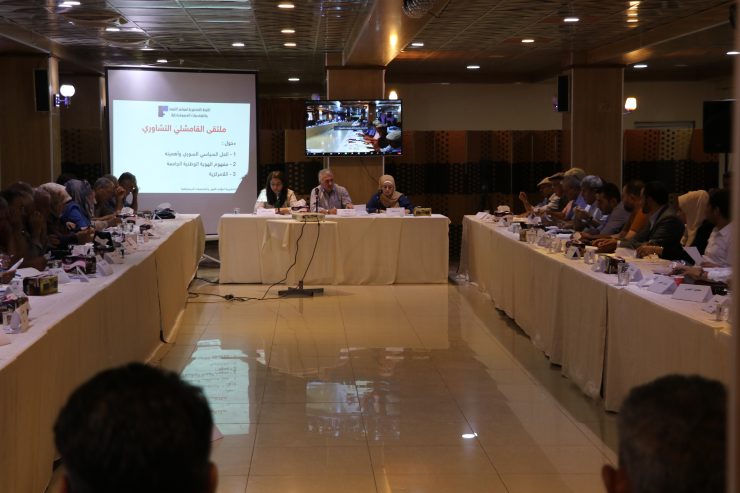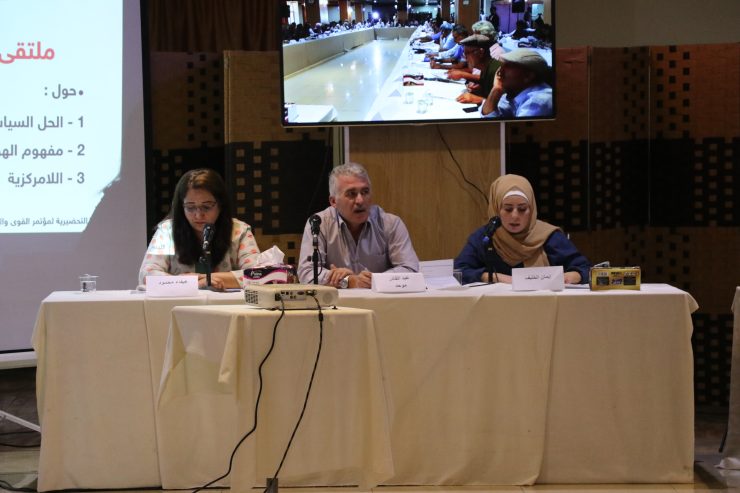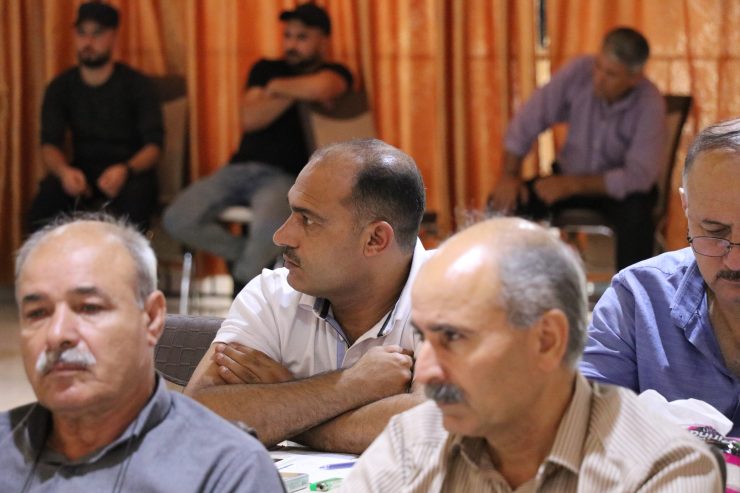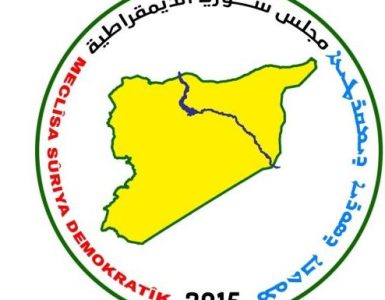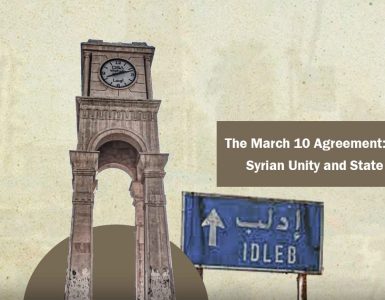Figures and representatives of Syrian political powers and movements discussed the concept of the inclusive national identity that seeks to unite the Syrians and unify their ranks within a national framework, during the second session of Al- Qamishli Consultative Forum, held on Friday, September 16th, at the invitation of the Preparatory Committee for the Conference of Democratic Powers and Figures.
The forum discussed the national identity paper and its forms during the session initiated by Iman Al-Khelaif, a member of the preparatory committee for the conference, by saying that “The identity crisis is a central issue for any dialogue on a radical and comprehensive resolution in Syria”.
The inclusive Syrian national identity represents an umbrella that brings together the ethnic, cultural, religious, sectarian, national and class diversity in Syria on the basis of citizenship, and it is a changing, complex and flexible identity based on rational communication and not on the basis of affiliation.
Meanwhile, Haifa Mahmoud, a political activist from the city of Al-Qamishli, said that “The sectarian violence imposed an authoritarian identity that is far from the diversity and plurality of components and ethnicities present on the Syrian territories”.
“Al-Baath regime imposed a single identity, which led the Syrians to their woes and suffering, amid the suppression of the Syrian components and making them within one identity” Mahmoud added.
Fares Othman, a political writer from the city of Al-Qamishli, pointed out that “It is not possible to talk about an inclusive national identity under the control of a totalitarian regime”.
Othman explained that “Access to a Syrian national identity passes through the recognition of local identities in order to establish a democratic state that brings together all Syrians’ identities”.
Nidal Fendi, a representative of Latakia city for the Social Democratic Party, said that coexistence is the basis for achieving an inclusive national identity.
Mahmoud Farouk, the Chairman of Al-Massa Center for Studies and Research, in Deir ez-Zor, pointed out that “The loss of identity in government and opposition institutions has resulted in jihadist and military identities”.
Farouk stressed the need to emphasize that the national identity is the result of natural differences of ethnic identities among the components of Syria, pointing to the need to launch a transitional political process and establish dialogue and respect among the Syrian components on the basis of recognition of their mother tongues and the practicing of their national rights.
Nasr Al-Din Ibrahim, the secretary of “the Kurdish Parti party” in Syria, noted that it must be recognized that the modern Syrian state is composed of several peoples on its historical territory and has a religious and cultural diversity pointing out that the national identity is built on a constitutional basis for all Syrian components, and that the constitution should recognize the national identity of the Kurdish people in addition to recognizing of all cultural, social and sectarian identities in Syria.


